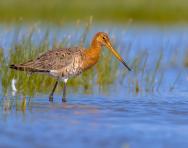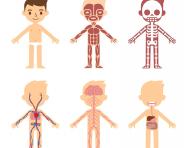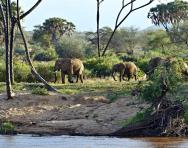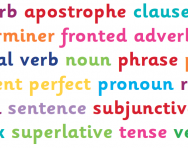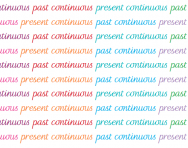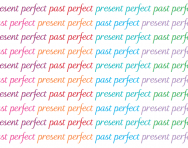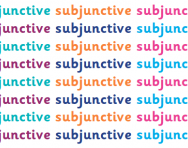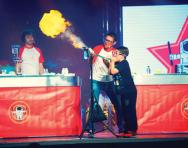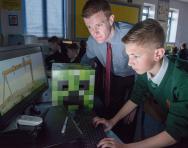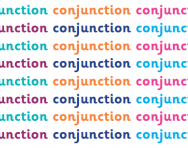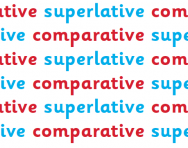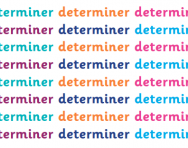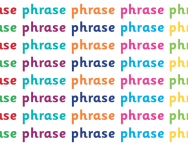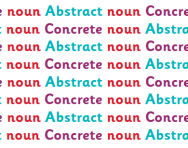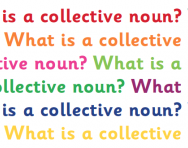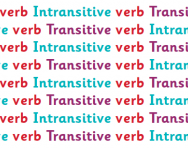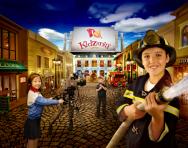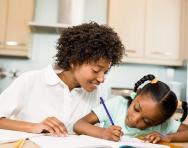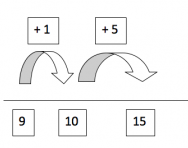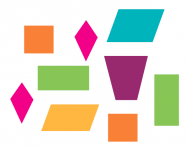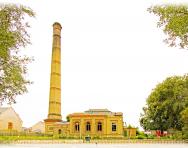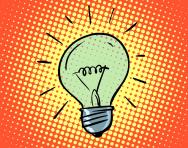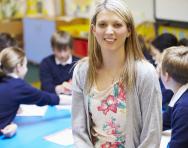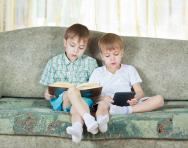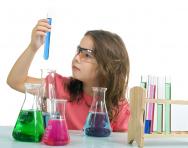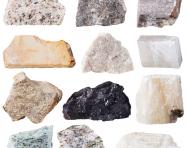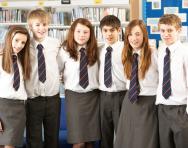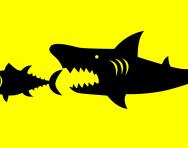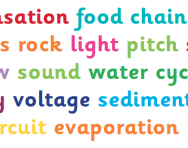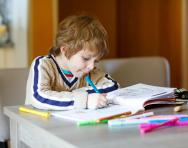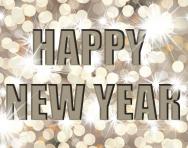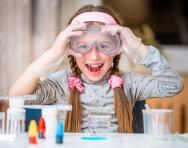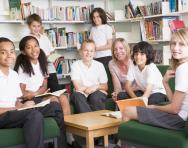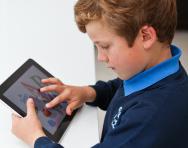Year 6 articles
Learning about animals in primary school
Carnivores, herbivores and omnivores; vertebrates and invertebrates. Your child will learn about animals and their classification in primary school. We explain what they will find out about amphibians, birds, fish, mammals and reptiles.
Learning about the body in primary school
At primary school children learn about the senses, the human skeleton, teeth and their function, the digestive system, puberty, the circulatory system and more. Find out what they'll be discussing in the classroom when and how you can support their learning at home.
What is a habitat?
Children are introduced to all kinds of habitats in primary school, from arid deserts to lush rainforests and vast oceans. Find out what your child will learn in primary-school science and how you can support your child's learning at home.
Primary grammar glossary for parents
Do you know the difference between the subject and the subjunctive? Can you identify a relative clause or find a phrase? From active voice to verb tense, TheSchoolRun's primary-school grammar glossary offers a complete guide to all the grammatical concepts children are taught in EYFS, KS1 and KS2 English. As well as basic definitions we offer more detailed explanations, teachers' tips and examples for each grammar term.
What is a Steiner school?
Steiner schools place an emphasis on preserving childhood, music and arts with an internationally recognised curriculum, but what actually takes place in the classroom?
What are the present continuous and the past continuous?
We use the present continuous and past continuous verb tenses when talking or writing about actions that continue or continued over a period of time In our parents' guide to the continuous or progressive verb tenses we explain what children are taught in the primary-school classroom.
What are the present perfect and the past perfect?
We use the present perfect and past perfect verb tenses when talking or writing about actions that are completed by the present or by a specific moment in the past or future. In our parents' guide to the perfect verb tenses we explain what children are taught in the primary-school classroom as part of the grammar curriculum.
What is the subjunctive?
Your child will learn about the subjunctive form as part of the Year 6 grammar curriculum. We explain what KS2 parents need to know about this verb form and how to recognise and use it correctly.
The best science days out for families
Looking for a great day out that's educational, too? Inspire your budding scientist with a trip to one of these brilliant, hands-on UK science centres.
Learning through Minecraft
You may think it’s just another video game – albeit a particularly addictive one – but Minecraft could have educational benefits too…
What is a conjunction?
Conjunctions are joining words that link different parts of sentences. In our parents' guide we explain how children learn about conjunctions as part of the primary-school grammar curriculum.
What are comparatives and superlatives?
We use the comparative and superlative forms of adjectives and adverbs to compare things, people, actions and states in our writing. Find out how your child is introduced to this concept, how they will learn to form the comparative and superlative and how they will practise using them in the primary-school classroom.
What is a determiner?
Determiners (a, the, many, one, my, their) identify nouns and are taught as part of the Y5 and Y6 grammar curriculum. We explain what primary-school parents need to know.
What is a phrase?
A phrase is a small group of words within a clause. We explain how children are taught about clauses as part of the primary-school grammar curriculum and what you need to know to support their learning at home.
What are concrete and abstract nouns?
Concrete and abstract nouns explained for primary-school parents, including examples of how your child might be introduced to them in the classroom.
What is a collective noun?
Collective nouns explained for primary-school parents, including examples of collective nouns and how they are used.
What are transitive and intransitive verbs?
Help your child with Year 6 grammar and understanding how sentences are constructed with our parents' guide to transitive and intransitive verbs.
Museums reviewed by parents: KidZania
What does your child want to be when they grow up? London's new family attraction, KidZania, lets them try out prospective careers in a child-centred world.
Practical tips for preparing for SATs
Being well prepared for SATs will help your child feel more relaxed and confident, so how can you support them at home?
What is bridging through 10?
You probably "bridge through 10" without even realising it when you're adding up numbers in your head. We explain how this method will be presented to your child in the classroom and how you can help them practise at home.
What is a quadrilateral?
Can you name the 2D shapes we classify as quadrilaterals? Find out how your child will learn about four-sided, 2D shapes in primary school and try some hands-on activities to reinforce their learning at home.
Museums reviewed by parents: Cambridge Museum of Technology
The Cambridge Museum of Technology is a fascinating, hands-on look at how things work for all ages, within easy distance of the historic centre of Cambridge. Our review for parents explains what the museum has to offer for families.
What is electricity?
Circuit, cell, bulb, switch... Find out about the electrical terminology your primary-school child will be using in the classroom and try some hands-on activities to support learning about electricity at home.
How to help out at your child's school
Helping out at your child’s school is a great way to find out what they’re getting up to. We explain how to get your foot in the door.
Learning about space in primary school
Find out what children learn about space and our solar system at primary school with our guide for parents, and get some ideas about how to support your child's astronomical learning at home.
Books or e-books: which are best for your child?
Reading purists may look down on e-books, but they could have some surprising benefits for your primary school child.
What is a fair test?
Understand what is meant by 'fair test' in primary-school science and organise your own child-friendly investigations at home to help your child practise this concept.
What are igneous, sedimentary and metamorphic rocks?
Do you know the difference between igneous, sedimentary and metamorphic rocks? Find out what your child will be taught in KS2 science and how you can support their learning about geology at home.
What is a prep school?
A prep school education can be the stepping stone to a place at one of the UK's best secondary schools. We explain how the system works.
What are food chains and food webs?
A food chain is a diagram that shows us how animals are linked by what they eat; in food webs we represent the links between animals who eat or are eaten by more than one kind of animal. We explain how children learn about food chains in the primary-school classroom in our guide for parents.
Primary science glossary for parents
From condensation to the water cycle, TheSchoolRun's primary-school science glossary offers a complete guide to all the concepts children are taught in EYFS, KS1 and KS2 science. Brush up on your own science knowledge, clear up homework confusion and understand exactly what your child is learning at school by reading our basic definitions (with links to more detailed explanations, teachers' tips and examples).
What is light?
Light, reflection and shadows are all part of primary-school science. Find out how children learn about light and how you can support your child's science learning at home in primary-school teacher Catherine Casey's guide for parents.
Concentration exercises for primary school children
Getting your child to concentrate can be a tricky task, so try these fun tasks to help improve their attention and focus.
Primary school parents' resolutions for the New Year
The start of a new year is the perfect time to reflect on what we could do differently in the 12 months ahead. Here are our resolutions for the year ahead...
Teachers' tips for creative writing
How can children get to grips with creative writing? We asked teacher and author Jacqueline Harris for her insider advice.
21 things that always happen on school mornings
The hour before you leave the house for school is always the most stressful of the day. Here's why...
Best science sets for children
Looking for ways to encourage your child's interest in the world around them? These learning-through-play sets are perfect for budding scientists, allowing them to get hands-on and experiment with simple physics, meteorology, geology, anatomy, mechanics and more.
What is an all-through school?
More and more schools are opening up that provide education for all children from age three to 19. We look at the pros and cons of this new model of schooling.
Best tablet toys for children
Every child we know loves playing with a tablet computer – and now connected toys take learning to a new level by combining hands-on play with digital animations to teach the basics of story-telling, maths, spelling, reading and physics. Tablet toys are definitely not just for kids!
School social media policies explained
With cyber safety and online bullying becoming increasingly problematic, many schools are adopting social media policies. But what do these documents actually do?
